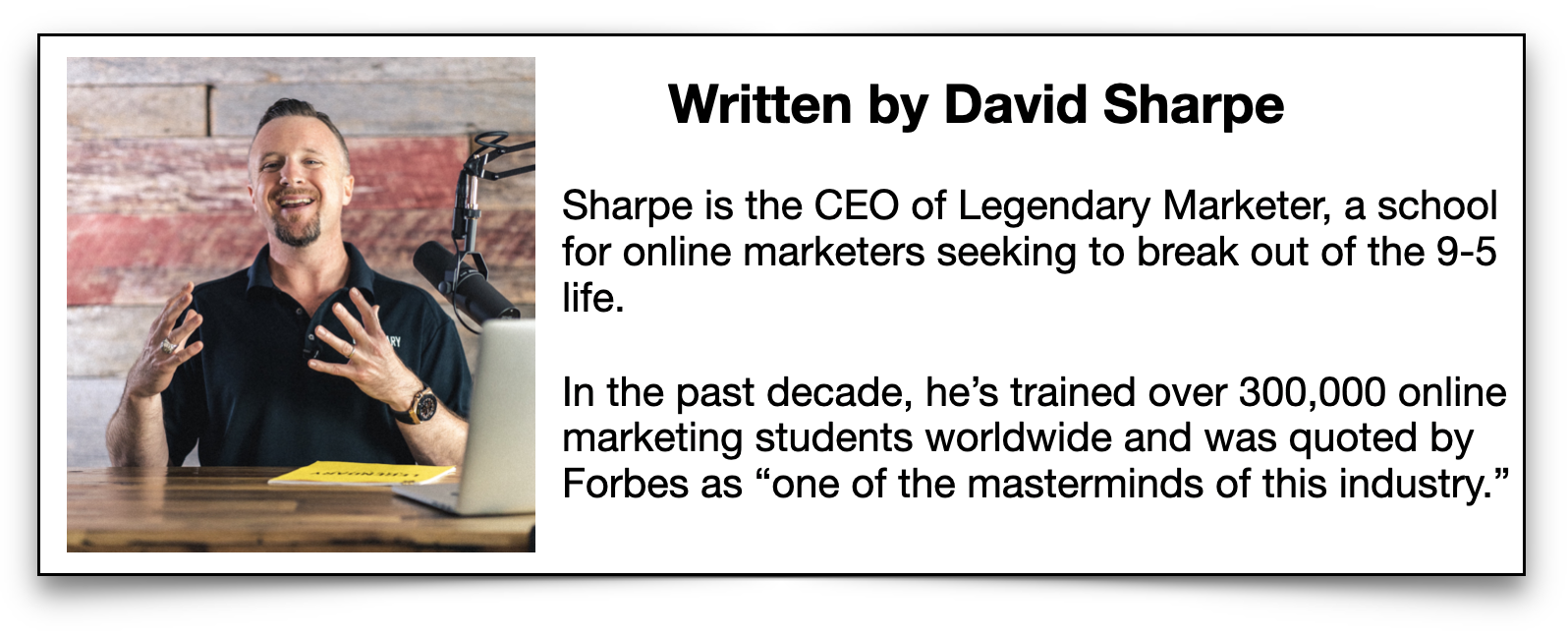
Are you looking to get more followers on your social media profiles?
For the longest time, people debate whether social media helps with SEO or not. While the truth in that matter is still up for debate, there’s strong evidence suggesting SEO doesn’t increase through posts from social media or the like.
However, that doesn’t mean SEO doesn’t help you gain followers in social media.
SEO does wonders in making your page visible enough to help you gain a lot of followers online. It can also help you top social media search engines with the help of social SEO. This is different from normal SEO, so knowing all you can about it can give you an advantage over your competition on social media. Here at Legendary Marketer we often use Social Media SEO with our Facebook content.
Read what we have below to understand the relationship between social media and SEO. Use this to know what SEO can do for your social media profiles.
Social SEO is Similar to Traditional SEO in Certain Ways
Before learning about how SEO can help with your social media profile, understanding how social search optimization works should be among your first priorities. The reason for this is it allows you to do better in optimizing your social media content to rank higher.
A good way to understand social search optimization is to think of social media platforms like search engines in and of themselves. They have a ranking system as well as different factors affecting the SEO of a social media post. The way social search optimization is different though is it puts a higher priority on actions on a social media post.
Actions are the activity a post gets like shares, reactions, and comments. The more actions your post gets in a short span of time, the higher your SEO will be on social media. While creating content, you should ensure it gets a lot of views on YouTube, likes on Facebook, retweets on Twitter, and reactions on Instagram.
To help you get all those, here’s a list of the things you can do to improve your social media SEO.
1. Know How to Attract Your Intended Social Media Audience
As you create a social media profile, it’s imperative you first do some research on a few things. The most important bit to research though is your audience. Understanding your audience is the key to having a successful social media profile.
This is important because small factors like your demographic’s age and gender can play a big role in social media. If your intended audience are millennials, for example, they may respond better to your content if it has some humor mixed in and a touch of cynicism as well.
This is only one example of how you can mold your content to fit your audience. Also, while researching, you should pay attention to trends your audience leans towards. You can leverage these to catch their eye later on.
2. Make Correct Use of Keywords
Keywords are the essence of anything SEO related. This also holds true when it comes to the SEO of social media platforms.
There are 2 different kinds of keywords which you can choose to use in your content. Using any of the 2 will help people find your page faster and even help you appear on the front page of Google and the like.
Long Tail Keywords
This type of keywords is for a more specific audience. Often composed of four words or more, these keywords don’t bring much traffic to your content or page. This is due to the fact the words need to be specific to make them work like regular keywords.
Because they’re less likely to succeed, they’re not as contested as shorter keywords. This makes it easier for you to get a hold of a good keyword without worrying about contesting. Don't worry about the conditions you need to meet to make them work, these keywords can still be effective.
The best way to make long tail keywords work is to target a niche audience. While they’re fewer than a general audience, niches ensure you get priority on traffic should they search your long tail keyword. If you do this well, you should notice a great surge of traffic going to your content and social media page.
Short Tail Keywords
Opposite to long tail keywords, these keywords often have 2-3 words between them. These are also direct opposites to long tail keywords as they’re more useful for a general audience. Because they’re shorter, it’s easier for them to pick up a high search frequency from people on the internet.
This quality also makes them more contested than compared to a long tail keyword. Getting a hold of a short tail keyword can ensure a great rise in traffic from all audiences to your page though.
It also ensures a higher search frequency on traditional search engines. This is because they promote traditional SEO due to being a common word or phrase. Again, this will help other people coming from websites outside social media to find you.
Once you have your keyword ready for use, what you should do now is blend it in your content in a natural way. Grammar should take priority too as engines now check the usage of the keyword before ranking it.
Also, take care not to stuff your content with keywords. This is among the most common SEO mistakes people commit when creating content. Search engines will think bots made the content and mark it as spam, ensuring people don’t find your content.
3. Create Social Media Content on a Regular Basis
Creating and putting out content on a regular basis makes sure you make your mark on social media. It also helps social search engines to recognize you as an active page. Being active is something search engine bots love as they’re always on the lookout for dead pages.
The more activity your page has, the higher search engine bots will rank you. The ranking score you get from this is small, but doing so helps you build a social reputation.
As you begin as a page on social media, you can’t expect people to trust you at once. You need to earn their trust and posting content is a way to do that. Doing so also makes you look like a professional in your topic’s field.
Even when you’ve gathered a large audience, you shouldn’t stop posting content on the regular. If you must, reposting old content is a viable option. Doing this makes ensures your audience and search engine bots that you’re still an active page.
4. Ensure Your Social Media Content is Up to SEO Standards
While you’re grinding out the content, there are a few things to consider for matters of SEO. For example, you should consider your content’s grammar and composition. The quality of your content, if written, is often checked by the bots mentioned above.
Spelling or grammatical errors can drop your score by a significant amount. For video posts, what you should consider is the title, thumbnail, and length of it.
The title should contain your main keyword for marketing. Doing this makes it easier for your target audience to find on SEO and social media engines. The thumbnail should be appealing enough to catch the eye of anyone scrolling past most posts.
Your video’s length is also important as many people tend to skip longer videos. Keep it short and don’t drag your content out. Retention is important in video posts, so go straight to the point of why you’re making the video.
When it comes to images, there’s not much to discuss other than making it SEO compatible. To do this, you should compress it to SEO specifications. You can even have it licensed as an SEO image for others to use as well.
5. Learn the Basics of Link Building
Link building is one of the best ways you can promote your social media content with SEO. Mastering this means you can set up SEO for your page and content that can outlast any of the other current search engine optimization techniques.
The basics you should know about for link building are relevance and authority. Relevance pertains to how much your link relates to both your content and your audience. Having an irrelevant link may lessen your authority on your topic to your audience.
You should always make sure your links have a good connection to your topic and audience. To do this, you need to look beyond the title of a post and read the meat that’s its content. Titles are often misleading in that they sometimes don’t relate to the content.
In regards to the authority of links, there’s a certain way that works. As you know, we all start at the bottom at the beginning. You shouldn’t expect your links to hold much authority at all at first.
That can change over time though by using the other links with high authority on your content. Doing so increases your authority as well as increasing theirs. This makes this method a great way to build partnerships with other pages, too.
Know What SEO Can Do for Your Social Media Today
Social media is a big part of today’s world. Take full advantage of social media by increasing your social SEO score today! With it, you can create a successful social media page and skyrocket your social media career.
Need more info on how to create a successful business on social media? Visit our free online webclass to learn more marketing tips on how to bring in more traffic and views on your content.

